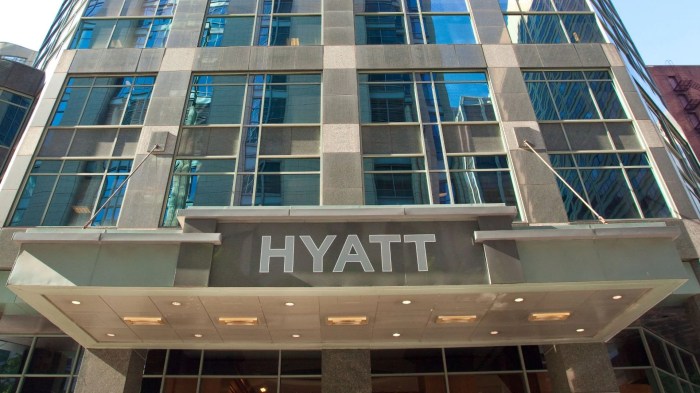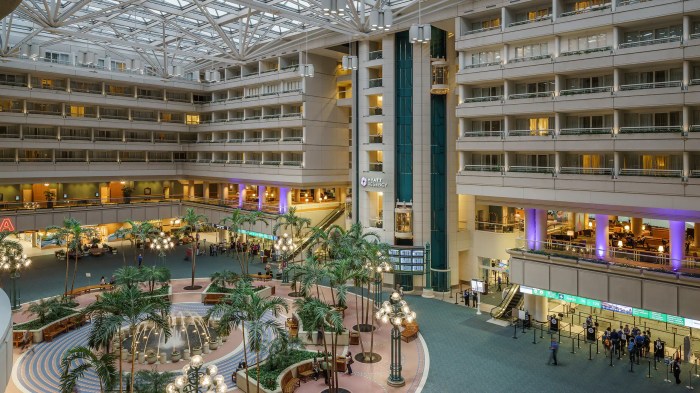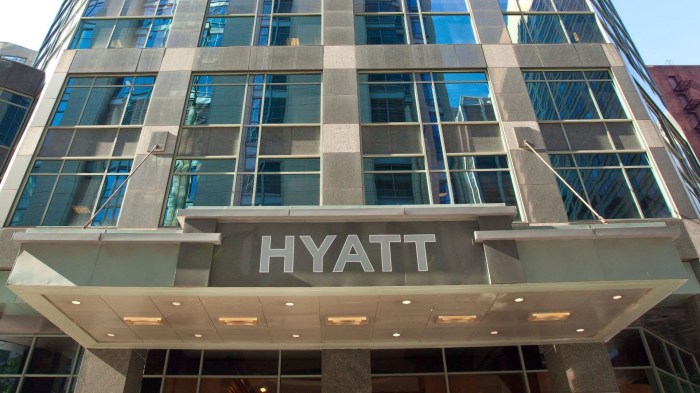White nights and warm days summer in st petersburg – White nights and warm days summer in St. Petersburg offer a unique experience unlike any other summer destination. Imagine long, light-filled evenings perfect for exploring the city’s vibrant culture and stunning architecture. This summer, feel the magic of St. Petersburg as the sun barely dips below the horizon, creating an atmosphere that’s both captivating and unforgettable.
The weather patterns, typical daylight hours, and the city’s rich history come together to paint a picture of a truly extraordinary summer.
From leisurely walks through parks to captivating performances in theaters, the city awakens in a special way during this time. This guide will take you on a journey through the best activities, cultural highlights, and vibrant nightlife that St. Petersburg has to offer during its magical summer season.
Introduction to St. Petersburg’s Summer
St. Petersburg, a city steeped in history and renowned for its architectural grandeur, experiences a unique summer season. Known for its “white nights,” the city’s long daylight hours transform the urban landscape into a vibrant tapestry of activity. This summer magic extends beyond mere aesthetics, deeply influencing the city’s cultural identity and lifestyle. The long, warm days create a unique atmosphere, inviting residents and tourists alike to experience the city in a different light.The city’s summer months, typically stretching from June to August, are characterized by a pleasant climate, a stark contrast to the colder winter months.
The defining feature of this season is the phenomenon of “white nights,” a period when the sun barely dips below the horizon, creating extended daylight hours. This unusual phenomenon, resulting from the city’s high latitude, has a profound effect on the city’s atmosphere, its inhabitants, and its visitors.
Summer Climate Overview
| Dates | Temperature Range (°C) | Typical Daylight Hours |
|---|---|---|
| June | 15-20°C (59-68°F) | 18-20 hours |
| July | 18-25°C (64-77°F) | 19-21 hours |
| August | 16-22°C (61-72°F) | 17-19 hours |
This table illustrates the typical temperature ranges and daylight hours during St. Petersburg’s summer months. These variations reflect the transition from the early, cooler days of June, through the peak of summer in July, and the slightly shorter days of August. The overall pattern suggests a comfortable climate ideal for outdoor activities.
Historical Context of White Nights
The phenomenon of white nights has a rich historical context, deeply woven into the fabric of St. Petersburg’s culture. The extended daylight hours, a unique feature of the city’s high latitude, have inspired countless works of art, literature, and music. The long summer days have been a source of inspiration for artists and writers alike, providing an extended period for creativity and exploration.
St. Petersburg’s white nights and warm summer days are truly magical. Imagine exploring the city’s vibrant culture and architecture under the midnight sun, and then, for a change of pace, consider tackling the challenging climb up Pen y Fan in Wales. A great guide to conquering Pen y Fan, a popular Welsh mountain, can be found here: guide to pen y fan wales.
It’s a completely different kind of adventure, but the incredible views are well worth the effort, just like the white nights in St. Petersburg!
This period has been famously associated with a sense of freedom and boundless possibility, particularly in the creative fields. The white nights have also fostered a unique social dynamic, with residents and tourists alike engaging in outdoor activities well into the night.
Impact on Tourism and Outdoor Activities
The extended daylight hours significantly impact tourism and outdoor activities in St. Petersburg. The city becomes a vibrant hub of activity, with numerous outdoor events, concerts, and festivals taking place throughout the city. Tourists can enjoy leisurely strolls along the canals, explore museums and galleries, or attend performances in the open air. The long evenings encourage a slower pace of life, fostering an appreciation for the city’s charm and culture.
The atmosphere is conducive to enjoying the city’s unique beauty and experiencing the rich cultural offerings, making the summer months particularly attractive to visitors.
Activities and Experiences
St. Petersburg’s summer, with its famous White Nights, offers a unique and vibrant experience. The extended daylight hours unlock a plethora of opportunities for outdoor adventures, cultural immersion, and social gatherings. This period truly transforms the city, making it a destination unlike any other in the summer months.The city awakens with a buzz of activity. The long daylight hours create a magical atmosphere, extending the day’s possibilities for exploration and enjoyment.
This makes the city a truly dynamic place to experience the vibrant Russian summer.
St. Petersburg’s white nights and warm summer days are magical, but if you’re looking for a different kind of adventure, planning a trip to Niagara Falls could be a great option! Check out trip ideas how to plan the perfect Niagara Falls for inspiration on how to make the most of your time there. Ultimately, though, nothing beats the unique charm of a Russian summer, especially in St.
Petersburg.
Popular Summer Activities
St. Petersburg’s summer is a time for enjoying the outdoors. Numerous parks and open spaces come alive with people taking leisurely walks, enjoying picnics, or simply soaking in the atmosphere. The extended daylight hours make it possible to experience the city in a new way, transforming evening walks into a magical spectacle.
- Walking tours are popular, offering insights into the city’s history and architecture. These tours often extend into the evening hours, allowing participants to experience the city’s unique charm under the light of the white nights.
- Picnics in parks like Peter and Paul Fortress or the Summer Garden are a quintessential summer pastime. The warm weather and extended daylight hours make these events particularly enjoyable, creating a relaxed and welcoming atmosphere.
- Outdoor concerts and performances are another highlight. Many venues host events under the open sky, capitalizing on the extended daylight hours. These events are a great way to experience live music and performances in a beautiful setting.
Best Time for Outdoor Activities
The extended daylight hours in St. Petersburg during summer are a unique opportunity for outdoor activities. The best time for walks, picnics, and concerts depends on personal preferences and the specific event. Generally, the late afternoon and evening hours are optimal for enjoying the longer daylight hours. Many outdoor concerts are scheduled for this time as well.
It’s best to check event schedules for precise timings.
Role of Museums, Galleries, and Theaters
Museums, galleries, and theaters maintain their schedules throughout the summer, offering cultural experiences for visitors and residents. These venues often host special summer exhibitions or performances, adding to the rich tapestry of activities available. The city’s cultural institutions are an integral part of the summer experience.
Impact of Summer Weather
The warm summer weather significantly impacts daily routines and social gatherings. Outdoor activities become more prevalent, and people tend to spend more time in parks and open spaces. Social gatherings are often held outdoors, enhancing the festive atmosphere. This weather shift creates a noticeable difference in the city’s rhythm and energy.
Comparison with Other Summer Destinations
St. Petersburg’s summer experience stands out due to the White Nights phenomenon. While other destinations might have similar weather patterns, the extended daylight hours are unique to St. Petersburg. This distinct characteristic provides a special and unforgettable experience.
The city’s rich history and culture also set it apart from other summer destinations.
Typical Summer Itinerary
| Time | Activity |
|---|---|
| 10:00 AM – 12:00 PM | Visit the Hermitage Museum |
| 12:00 PM – 1:00 PM | Lunch at a local cafe |
| 1:00 PM – 4:00 PM | St. Petersburg City Tour |
| 4:00 PM – 6:00 PM | Picnic in the Summer Garden |
| 6:00 PM – 8:00 PM | Outdoor Concert |
| 8:00 PM – 10:00 PM | Evening Stroll along the Neva River |
Cultural Significance of White Nights: White Nights And Warm Days Summer In St Petersburg

The white nights of St. Petersburg, a period of extended daylight during summer, are more than just a natural phenomenon; they have deeply woven themselves into the city’s cultural fabric. This unique experience has inspired countless artists, writers, and musicians, leaving an indelible mark on the city’s identity and the wider world of art and literature.The prolonged daylight hours create a special atmosphere, fostering a sense of boundless possibility and a feeling of heightened awareness.
This unique environment has fostered a particular type of creativity and inspired countless works of art, literature, and music. The white nights are not merely a visual spectacle; they represent a specific time and mood that profoundly shapes the city’s cultural landscape.
Historical and Cultural Impact
The white nights have shaped local customs and traditions, influencing social interactions and leisure activities. The extended daylight hours allow for longer walks, picnics, and social gatherings in parks and along the canals, creating a distinct cultural experience. These gatherings, in turn, have evolved into a rich tapestry of social events and traditions, contributing significantly to the city’s unique character.
Literary and Artistic Inspirations
The white nights have served as a potent source of inspiration for countless literary and artistic works. The ethereal quality of the light and the sense of boundless possibility have captivated writers and artists, leading to numerous portrayals of the white nights in their creations.
- The extended daylight hours have fostered a sense of openness and freedom, influencing the themes of romance, introspection, and societal observation in numerous works.
- The unique atmosphere of the white nights has provided a canvas for exploring complex human emotions and experiences, as exemplified in various artistic and literary works.
Examples of Artistic and Literary Works
Numerous works of art, literature, and music reflect the theme of the white nights. These works capture the essence of the extended daylight, the feeling of boundless possibility, and the particular mood of the city during this unique period.
- Fyodor Dostoevsky’s novel “Crime and Punishment” features a character deeply impacted by the city’s atmosphere, and the novel’s setting subtly reflects the impact of the white nights on the characters’ actions and emotional states. The atmosphere, subtly depicted in the narrative, adds to the character’s mental turmoil.
- The poetry of Anna Akhmatova often evokes the beauty and mystery of the white nights. Her works capture the essence of the city’s ambiance during this time, weaving it into the fabric of her verses.
Influence on Local Customs
The white nights have influenced local customs and traditions, shaping social interactions and leisure activities.
- The extended daylight hours have fostered a sense of openness and freedom, encouraging longer walks, picnics, and social gatherings in parks and along the canals.
- These gatherings have evolved into a rich tapestry of social events and traditions, becoming a significant part of St. Petersburg’s unique character.
Table of Associated Works
| Historical Figures | Artworks | Literary Works |
|---|---|---|
| Fyodor Dostoevsky | Paintings by Ivan Shishkin (depicting landscapes of St. Petersburg during summer) | “Crime and Punishment” by Fyodor Dostoevsky |
| Anna Akhmatova | Sculptures by Mikhail Shemyakin (capturing the movement and energy of the city) | Poetry by Anna Akhmatova (reflecting the white nights) |
| Alexander Pushkin | Drawings by Viktor Vasnetsov (depicting the city during the white nights) | “Eugene Onegin” by Alexander Pushkin (alluding to the city’s atmosphere) |
Tourism and Hospitality
St. Petersburg’s summer, especially during the White Nights, is a magnet for tourists from around the globe. The unique charm of the city, combined with the extended daylight hours, creates an unparalleled atmosphere for exploration and enjoyment. The hospitality industry plays a vital role in enhancing this experience, offering a wide range of accommodations, dining options, and activities to suit every traveler’s needs.The city’s stunning architecture, rich history, and vibrant cultural scene all contribute to its appeal, especially during the long summer days.
This period allows for deeper immersion into the city’s soul, making it a popular choice for both short and extended stays.
Impact of White Nights on Tourism
The White Nights phenomenon significantly impacts the tourism industry in St. Petersburg. The extended daylight hours allow tourists to explore more of the city’s attractions, museums, and neighborhoods, fostering a deeper appreciation for its unique atmosphere. This extended time for sightseeing leads to a greater number of visitors and increased revenue for hotels, restaurants, and other businesses.
Popular Tourist Attractions
Several attractions are best experienced during the summer in St. Petersburg. The Peter and Paul Fortress, with its panoramic views, is ideal for daytime exploration. The Hermitage Museum, a treasure trove of art and history, can be enjoyed in greater detail during the longer daylight hours. A boat tour on the Neva River is an excellent way to appreciate the city’s skyline and architectural marvels from a unique perspective.
The numerous parks and gardens, such as the Summer Garden and Peterhof Palace, offer a tranquil escape from the city’s hustle and bustle.
Best Hotels, Restaurants, and Cafes
St. Petersburg boasts a variety of hotels catering to different budgets and preferences. Luxury hotels like the Four Seasons Hotel Lion d’Or offer unparalleled elegance and service, while more budget-friendly options like the Hotel Angleterre provide comfortable accommodations in the heart of the city. For dining experiences, restaurants in the historic center offer traditional Russian cuisine, while cafes in trendy neighborhoods like Nevsky Prospekt serve a variety of international dishes.
The atmosphere of these locations amplifies the charm of the city.
Transportation Options
Public transportation in St. Petersburg is extensive and efficient, with metro, buses, and trams readily available to navigate the city. During the summer months, walking is also a fantastic way to experience the city’s charm. Taxis and ride-sharing services are also readily available for those seeking a more convenient mode of transport.
Significance of White Nights for International Tourists
The White Nights are a significant draw for international tourists. The unique experience of extended daylight hours, coupled with the city’s rich culture and history, creates an unforgettable experience that distinguishes St. Petersburg from other destinations. This unparalleled opportunity for exploration and immersion into the city’s essence greatly influences the decision-making process of international tourists.
Hotel Comparison Table
| Hotel | Location | Amenities | Price (approx.) |
|---|---|---|---|
| Four Seasons Hotel Lion d’Or | Historic Center | Luxury rooms, spa, fine dining, concierge service | $$$ |
| Hotel Angleterre | Nevsky Prospekt | Comfortable rooms, central location, restaurant | $$ |
| Park Inn by Radisson St. Petersburg | Near the city center | Modern rooms, business center, convenient location | $ |
Note: Prices are approximate and may vary depending on the season and room type. Dollar signs ($) denote varying price ranges, from low-budget to high-end.
Warm Days and Nightlife

St. Petersburg’s summer is a captivating blend of vibrant sunshine and endless twilight. The warm days, combined with the unique phenomenon of the White Nights, create a truly unforgettable experience, transforming the city into a living canvas of activity and entertainment. This period offers a unique opportunity to explore the city in a different light, enjoying a dynamic nightlife that seamlessly integrates with the extended daylight hours.The city’s temperature during the summer months typically hovers between 15°C (59°F) and 25°C (77°F), making outdoor activities highly enjoyable.
This comfortable weather is ideal for strolling along the canals, visiting parks, and dining al fresco. The pleasant temperatures, coupled with the long hours of daylight, provide ample opportunities for socialising and engaging in various activities.
Typical Warm Weather Conditions
St. Petersburg’s summer days are generally characterized by warm, comfortable temperatures. This makes outdoor activities such as walking, cycling, and picnics a highly popular pastime. The weather is often mild and sunny, offering a pleasant contrast to the city’s cooler winter months.
Nightlife Options
The extended daylight hours in St. Petersburg during the summer months significantly influence the city’s nightlife. Many bars and restaurants remain open later than usual, offering a diverse range of entertainment options. The extended hours of daylight allow for a gradual transition from daytime activities to evening pursuits.
St. Petersburg’s white nights and warm summer days are fantastic, but if you’re craving a beach getaway, checking out trip ideas for beach vacations and the best beaches in the world might be a good idea. trip ideas beach vacations best beaches in the will have tons of options, from turquoise waters to golden sands. Still, there’s something undeniably special about those long, light-filled evenings in St.
Petersburg, and I can’t wait to experience it again.
Evening Entertainment and Relaxation
Numerous venues cater to a diverse range of tastes, from traditional Russian restaurants to trendy bars and clubs. The city’s historical architecture provides a unique backdrop for these establishments. The Peter and Paul Fortress, with its scenic views, often becomes a focal point for evening gatherings. Numerous parks, such as the Summer Garden and the Peterhof Palace gardens, offer tranquil settings for evening relaxation, complete with open-air concerts and performances.
Outdoor Dining Experiences
The warm weather significantly enhances the dining experience in St. Petersburg. Numerous restaurants and cafes offer outdoor seating, providing a chance to enjoy a meal while taking in the city’s atmosphere. This is a perfect opportunity to sample local delicacies and enjoy the vibrant energy of the city. The extended daylight hours also enable more people to enjoy outdoor dining in the evening.
Parks and Public Spaces in Summer Nightlife
Parks and public spaces play a vital role in the city’s summer nightlife. They transform into social hubs, hosting events and gatherings. The Summer Garden, with its historic charm, hosts numerous evening performances, adding to the vibrant atmosphere. Picnics, gatherings, and leisurely walks become common pastimes as the evening progresses.
Complementarity of Warm Days and White Nights
The warm days and white nights complement each other beautifully. The comfortable weather enhances the experience of extended daylight, allowing people to enjoy outdoor activities and socialising well into the evening. The extended hours of daylight also create a relaxed and vibrant atmosphere, ideal for leisurely strolls and social gatherings.
Summer Evening Outings
- Canal Cruises: Enjoy a leisurely evening cruise on the Neva River, taking in the city’s illuminated landmarks.
- Picnics in Parks: Pack a basket and enjoy a picnic in one of St. Petersburg’s beautiful parks, such as the Summer Garden or the Alexander Park. The extended daylight hours allow for more time to enjoy the ambiance and the company of friends.
- Open-Air Concerts: Many parks host open-air concerts and performances, offering a chance to experience live music and entertainment.
- Exploring Night Markets: Immerse yourself in the vibrant atmosphere of the city’s night markets, finding unique souvenirs and enjoying the lively energy.
Visual Representation
St. Petersburg’s summer unfolds as a captivating spectacle, a symphony of light and color against the backdrop of its iconic architecture. The white nights, a unique phenomenon, transform the city into a realm of ethereal beauty, casting a magical glow over everything from the grand palaces to the bustling streets. This visual tapestry is woven from the interplay of the sun’s soft, warm embrace and the city’s architectural grandeur.The experience of St.
Petersburg’s summer is deeply tied to the interplay of light and color. The extended daylight hours create a vibrant atmosphere, allowing for a unique appreciation of the city’s historical buildings, parks, and bridges. Colors, often muted during the shorter days of other seasons, are illuminated and intensified by the long summer evenings, providing a rich palette for the observer’s eye.
Typical Summer Scene
A typical St. Petersburg summer scene presents a captivating interplay of light and shadow. The warm, golden light of the late afternoon bathes the neoclassical buildings in a soft glow. As the sun dips below the horizon, the sky transitions through a spectrum of hues, from fiery oranges and pinks to deep purples and indigo blues. This spectacle is reflected in the canals and rivers, transforming the water into a mirror reflecting the vibrant sky.
The city’s parks, with their meticulously maintained gardens and vibrant greenery, come alive under the extended daylight hours.
Importance of Light and Color
The light and color of St. Petersburg’s summer are crucial to the overall experience. The extended daylight hours provide ample opportunity for outdoor activities and exploration. The vibrant colors of the city’s architecture, parks, and gardens are amplified by the diffused light, offering a unique visual feast. The contrast between the warm summer light and the city’s historical buildings, with their intricate details and rich ornamentation, creates a mesmerizing visual contrast.
Descriptive Words and Phrases
To capture the essence of a white night in St. Petersburg, one could use evocative words and phrases such as:
- Ethereal glow
- Golden hour
- Magic hour
- Enchanted twilight
- Luminous ambiance
- Warm, diffused light
These words and phrases evoke the sense of wonder and beauty associated with this unique phenomenon.
Visual Appeal of Parks and Streets
St. Petersburg’s parks, such as the Summer Garden and Peter and Paul Fortress, become vibrant canvases under the white nights. The lush greenery, illuminated by the soft light, takes on a new dimension. The meticulously manicured lawns, flowerbeds, and fountains are highlighted, creating a tranquil and beautiful atmosphere. Similarly, the city’s streets, with their historical buildings, come alive with a soft, almost mystical light.
Contrast Between Architecture and Light
The contrast between the city’s architecture and the warm summer light is striking. The grandeur of the palaces and cathedrals, with their intricate facades and detailed carvings, is beautifully contrasted against the soft, diffused light of the white nights. The interplay of light and shadow on the facades enhances the architectural features, revealing subtle details that might otherwise go unnoticed.
Unique Visual Appeal of Summer in St. Petersburg, White nights and warm days summer in st petersburg
The white nights in St. Petersburg create a unique and captivating visual experience. The city, bathed in a soft, golden light, transforms into a realm of ethereal beauty. The extended daylight hours allow for a deeper appreciation of the city’s architecture, parks, and cultural landmarks. The contrast between the historical buildings and the warm summer light creates a mesmerizing visual tapestry, making the city feel almost magical.
Epilogue
In conclusion, St. Petersburg’s white nights and warm days summer is an experience that transcends the ordinary. It’s a time of cultural immersion, artistic inspiration, and unforgettable memories. The city truly comes alive during these months, beckoning visitors to experience its unique charm. From the historical significance to the modern attractions, St.
Petersburg offers a captivating blend of tradition and modernity, making it a truly special destination for any summer traveler.










